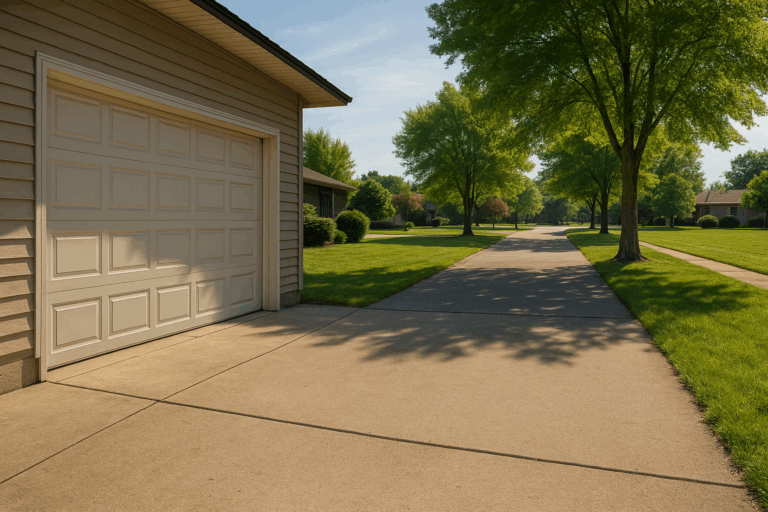

Garage doors go through thousands of open-close cycles a year. That constant motion creates vibration, which loosens bolts and screws over time. Use a socket wrench to tighten the roller brackets and track supports. Just a few minutes of this can eliminate much of the clatter.
Lack of lubrication is one of the top causes of noisy garage doors. Apply a silicone-based garage door lubricant to the rollers, hinges, and springs. Avoid using grease or WD-40 — they can attract dirt and worsen the problem over time.


Worn or metal rollers often make clicking or grinding sounds as they move along the tracks. If yours look worn or damaged, consider replacing them with nylon rollers. They’re quieter and require less maintenance.
Creaking or popping often comes from worn hinges or loose brackets. Look for signs of wear like metal shavings, cracks, or black dust near hinges. If they’re deteriorating, it may be time to replace them before they cause further damage.


Disconnect the opener and try lifting the garage door halfway. If it doesn’t stay in place or slams shut, your springs may be unbalanced — a big contributor to strain and noise. This fix should be left to a pro, but identifying it early can prevent costly repairs.
Older openers are often just loud by nature. If yours is over 10 years old, upgrading to a belt-drive or wall-mounted model can dramatically reduce noise. Bonus: modern openers come with smart home integration and better safety features.
A noisy garage door isn’t just annoying — it’s often a sign something needs attention. Follow this guide to quiet things down and avoid expensive issues later. And if you need a professional hand, Ultimate Overhead KY is here for you with fast, friendly service across Radcliff and surrounding towns.
